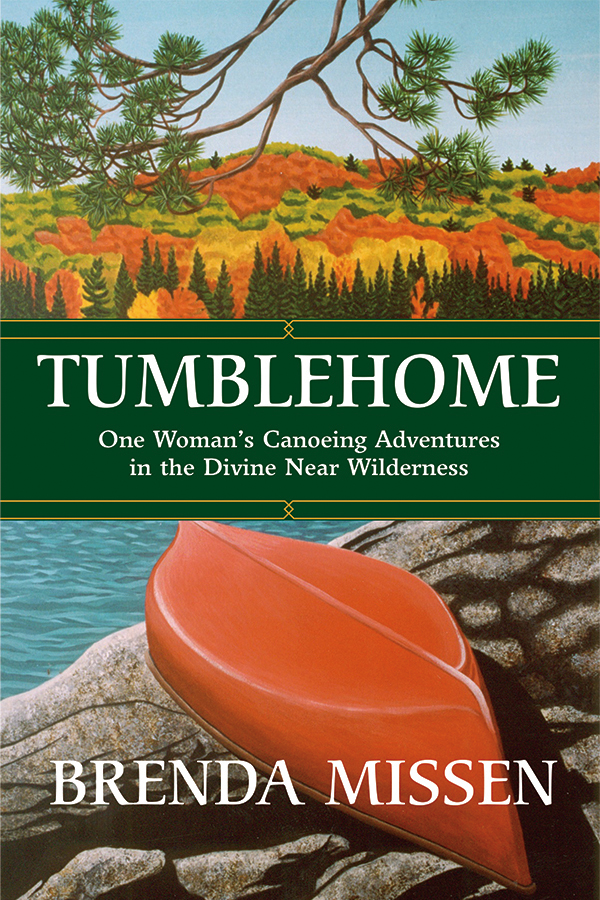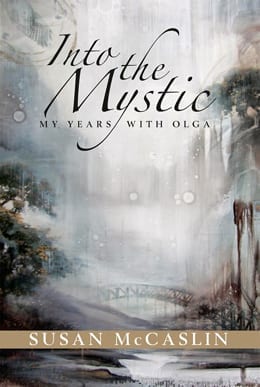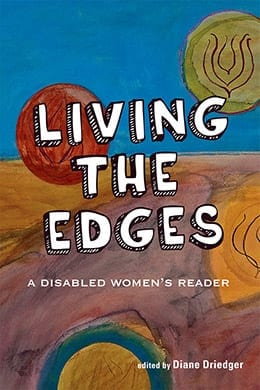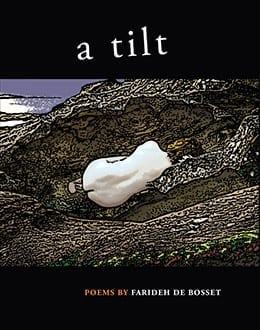On a warm August evening, Brenda Missen, a 37-year-old single, unattached writer, pitches her tent beside a lake in Canada’s 7,600 square-kilometre [3,000 square-mile] Algonquin Provincial Park. She is on a four-night “reconnaissance mission,” an hour’s paddle from the parking lot, to find out if she has the capability—and nerve—to one day take a real canoe trip in the park interior by herself. Paddling and portaging from her campsite by day and surviving imaginary bear attacks by night, she decides she’s ready. Then a ranger arrives to check her permit, and an inexplicable, powerful intuition tells her this is the person she’s meant to marry. Going solo may not be necessary after all.
But the fairy tale unravels. In the wake of a broken engagement to her One True Paddling Partner, Brenda ventures into the near wilderness on a series of solo canoe trips that blow all her perceptions of romance, relationships, God, and her own self (gently) out of the water. In our high-tech, urban age, when so many people are disconnected from the natural world, Tumblehome—part spiritual memoir, part travel adventure, and great part ode to the Earth—is a timely and important exploration of where our real roots lie.
“I hate camping, but I loved this book. It is a cleverly structured hymn to the healing power of earth and animals, sky and water, solitude and stillness; a spiritual journey of the soul to the self; and a love story of a most unconventional sort. All in all, as memoir, travel guide, adventure, prayer, and love story, a very satisfying read.”
—Jan Rehner, author of The House of Izieu and Almost True
“Almost allegorical in scope, Tumblehome sparkles with humanity.”
—Joseph Kertes, award-winning author of Gratitude and The Afterlife of Stars
“Brenda Missen, a self-described “keen canoeist,” has been a pilgrim of solitude. She has entered a world in which language has not yet been born and offers us the gift of her memoir, Tumblehome.”
—Diana Beresford-Kroeger, author of To Speak for the Trees: My Life’s Journey from Ancient Celtic Wisdom to a Healing Vision of the Forest
“Tumblehome, Brenda Missen’s compelling memoir, is the story of one woman’s canoeing adventures in the Canadian wilderness. Yet it is simultaneously a profound meditation on the complexities of human relationships, our common interface with the natural world, and a journey of spiritual transformation. In its pages, it is as if Annie Dillard meets the Taoist sage Lao Tzu. In Brenda, explorer, writer, and spiritual seeker converge in the telling. From the first line— “My paddle mines for diamonds that sparkle on the wind-riffled lake”—to the last, Missen cups us in the palm of her hands. As Brenda comes to trust her spiritual mentor Asante, to whom the book is dedicated, so readers can trust Brenda to gently open their hearts and minds to their own interior depths where “joy is [our] birthright and we are the diamonds we seek.”
—Susan McCaslin, author of Into the Open: Poems New and Selected
“Tumblehome takes us on an intimate journey into an emotional, spiritual, and physical wilderness where fears are overcome, relationships scrutinized, and enlightenment sought. A canoe trip with many twists and challenges, by the end I truly felt that I had forest-bathed with Missen.”
—Becky Mason, canoe Instructor, filmmaker, writer and artist
powered by Crowdcast
Brenda Missen is a writer and editor, active outdoors person, and author of the literary thriller Tell Anna She’s Safe (2011). Her personal essays and short stories have appeared in newspapers, outdoor magazines, and anthologies. She lives in Ontario’s Madawaska Highlands with her dog, Maddy, near Algonquin Provincial Park, her “canoeing home.” Her memoir, Tumblehome recounts both her canoeing adventures in the Canadian wilderness as well as her own personal transformation. www.brendamissen.com
from Chapter 5
A half metre of wet March snow had fallen overnight. I bushwhacked on my skis on the narrow woods trail beside the frozen river, ducking under spruce bows weighed down with snow. At the top of the hill I paused under a branch, elated in the way only exercise elates me, breath coming hard, heart thudding, mind rejoicing in the soft, silent deep white beauty all around. It struck me that if the ranger hadn’t ended our relationship, I would not be here: I would never have found my place on the Madawaska.
And that’s when it came. Like a bird alighting on the snow-laden tree branch beside me. Forgiveness. It arrived when I wasn’t focused on it or trying to make it happen. It arrived, out of the crisp sun-filled blue, with the realization that the ranger was the catalyst for a huge milestone in my life: the final dissolution of the fairytale dream. I could look back now, and see how our incredible mind connection had carried us away.
I took a swig from water bottle and thought back to something my oldest sister had said – that we had conducted our relationship out of time and place, away from our real lives. It seemed to me now, standing under the snow-white spruce canopy, that we had conducted our relationship mostly on a “soul” level. It had taken place, metaphorically speaking, in a canoe on water, never landing on solid ground. It was when we brought it into the social realm that the cracks began to show. We had to deal with each other’s personalities and friends and work schedules and habits – a far cry from purely connected minds and souls. Our minds were so connected, so often “one,” it never occurred to me our hearts wouldn’t, or couldn’t, stay connected as well. No one was to blame. I could forgive him.
I planted poles on either side of skis and pushed off down the hill.
***
There’s no rain to keep me awake but my brain is too full of new questions to sleep. Did Louise have any inkling of what was going to happen? Or did her intuition tell her to be with Brett, and did she, too, ultimately feel betrayed by it? She was an angry person, angrier than I’ve ever been. Did she come to a place of forgiving Brett before she died? Did she, perhaps more importantly, forgive herself? These are things I have yet to find out. In my own case, even as I’ve rejoiced at the arrival of peace in my heart toward the ranger, I’m aware there’s still anger simmering. It’s directed mostly at myself, for getting into one more short-lived relationship, and even more so for my “faulty” intuition. There’s just no reconciling that powerful intuitive thought that came to me on that Kioshkokwi campsite three years ago with my current status quo. I’ve spent years honing my intuition, it’s always been a gift. How will I trust it again? And yet, I muse sleepily before I drift off, it must be somewhat trustworthy: I’m out here by myself….
***
A cooing loon reveille brings me out of the tent. It’s eight o clock in the morning and seven loons have gathered in the middle of the lake. I plant myself on a rock to watch.
The loons form a circle. A moment later several disappear under the water only to bob up almost immediately. All seven form a row, white breasts all facing me. Still in a row, they swim toward me. Just as I wonder how close they’ll come to shore in this remarkable synchronized routine, they do a quarter-turn, all at the same time, and form a single-file line, in silhouette to me. They glide up the bay, and I race to get the agent’s binoculars for a magnified view of the rest of the show.
Through the binoculars, I watch one loon separate from the others, look around and flap his wings vigorously along the water until he’s airborne. He disappears over the tree-line but, because he’s a loon and it’s a loon ritual, carves back around the lake, flying past his loon friends and me before he disappears for good.
And then there are six.
One disappears below the surface.
And then there are five.
Another goes to check on the one below.
And then there are four.
These four swim farther up the bay.
And then I have to go to the biffy.
The four are still hanging out in the middle of the bay when I come back. They line up, like so many planes readying for take-off, and follow each other down the water runway and up into the air. Two disappear over the trees (forsaking loon ritual!). The last two grace me with a beautiful white-breasted fly-by over my campsite on their way around the lake.
And then there are none.
Except I know two are somewhere under the surface, somewhere in the lake. These two are the pair that belong to the lake, and I know sooner or later they’ll reappear.
I build a modest breakfast fire. It blazes immediately without the help of camp fuel. I’m confident the woods are safe. No guilt. Or remorse.
“Remorse,” writes B. Alan Wallace, my latest Buddhist mentor, “is sincerely focusing on a misdeed, taking responsibility for it, and regretting having done it…. Guilt is an afflictive state of mind focused on the self as in, ‘I am an unworthy person.’”
Asante puts it more bluntly: “Guilt is a useless emotion. It’s just you feeling bad about something you’ve already done. It doesn’t change anything.”
My writing has always been the biggest source of this useless emotion. I’ve felt guilty for the way I procrastinate. Guilty for not being prolific. For not having one novel published by the age of forty. And now I have the agent to throw into the mix. Asante is right though: the guilt doesn’t change anything. It doesn’t spur me to do anything different. It just makes me feel bad. Which makes things worse. I’ve come a long way in silencing the Critical Chorus, but guilt feels even more deeply ingrained than my propensity to beat myself up. It’s hot tar I can’t seem to stop pouring over myself. And is even worse now because ever since Asante told me how useless it is, I feel I shouldn’t feel guilty, which makes me feel guilty about feeling guilty.
I’m munching on buttered bannock on the shore when the two loons resurface.
***
The campsite at the north end of the lake is on such a steep slope there’s barely a level place to sit. And nowhere quiet: a band of ravens is screaming at each other in a tree. Finally I settle on one of the few flat rocks down at the water and open my notebook. The plan is to reward myself for a (hopefully) productive morning with a hike on the east shore slope. Somewhere beyond that slope is a ski trail. The same ski trail the ranger pointed out after bellowing his ecstasy into the little bay at the top of this very lake two years ago. The same ski trail the agent fantasized he would hike over to come for a visit this week. I can’t help thinking what would happen if he did.
In spite of the ravens’ continued screaming in the tree next door, I get a three-page scene scribbled. Huge relief: I’ve finally got something down on paper besides ideas. Also frustration: I’m antsy for exercise. Oh to be a calm sort of person who sits and writes for six or eight hours straight, the way I imagine all the other writers in the world do.
I climb in the boat. The ravens have stopped their racket at last. My thoughts return to the agent. Are we committing what he calls “emotional adultery”?
This epub and pdf are defined with accessible structural markup. This book contains various accessibility features such as alternative text for images, table of contents, page-list landmark, reading order, Structural Navigation, and semantic structure. This publication conforms to WCAG 2.0 Level AA. There is a page list and embedded page-breaks within this EPUB to aid in the ability to go to a specific page.
EPUB Accessibility Specification 1.0 AA
The EPUB Publication meets all accessibility requirements and achieves [WCAG 2.0] Level AA conformance.
- Table of contents navigation
- Reading order
- Short alternative descriptions
- Print-equivalent page numbering









Inanna Admin –
Tumblehome by Brenda Missen
reviewed by Edith Cody-Rice
The Millstone – July 9, 2022
https://millstonenews.com/tumblehome-by-brenda-missen/
If you love Algonquin Park, as I do, you will be intrigued by this book. It is substantial, at 304 pages (not counting acknowledgments) and is essentially a memoir of a woman coming to maturity aided by her spiritual advisor and the wilderness that is Algonquin Park. The full title of the book is Tumblehome: One Woman’s Canoeing Adventures in the Divine Near Wilderness.
Ms. Missen takes us through several years of her life in her late thirties and early forties as she shed some of the legacies of a deeply Christian childhood and the assumptions of main stream society about relationships between women and men. With the help of adventurous canoeing in the Park and her spiritual advisor and friend Asante, she comes to terms with her feelings of guilt, unworthiness and rejection, instilled in her by the Anglican church of her youth and the myth young women are taught that their lives will be completed by a man. The diary is intimate and astonishingly revealing about her relationships with two important men in her life and to a large degree, it is the landscape of the Canadian Shield where she finds her spiritual home and healing.
It is also an adventure story. I was particularly attracted to her canoeing exploits as the best two summers of my life were spent as a young nurse at a boys’ camp on Canoe Lake in Algonquin Park. The wilderness of it, even in mid Ontario, astonishes Europeans (not too mention me) who can see in it the vastness of Canada and its untouched forests. Although Algonquin is quite civilized in parts and made amenable to camping, the immensity of it with all of its trees, plants and wild life inspires awe and frequently peace.
Ms. Missen is an expert canoeist and camper and has canoed many lakes in the Park solo: a braver woman than I, I can assure you. But while frightened from time to time, especially of bears who raid unprotected food caches, she found her camping time calmed and healed her and helped her come to terms with her life, her life’s work and her fate. So much so that she purchased an isolated home on the Canadian Shield which cemented her sense of belonging and her own connection to the divinity of nature.
I should say that the target audience for this book is women, especially younger women, by which I mean women up to the age of forty or so, who can empathize with the relationships and struggles that Ms. Missen so ably relates. The title has a specific meaning which I shall leave to the reader to discover. She is a good writer and if you like this book, it will completely immerse you. A good read for the summer months when we in Canada think of going to the cottage or “up north”, although frequently up north is barely out of southern Ontario.
Inanna Admin –
Tumblehome: One Woman’s Canoeing Adventures in the Divine Near-Wilderness by Brenda Missen
reviewed by The Minerva Reader – September 5, 2022
https://theminervareader.com/library-2022
This memoir is a joy to read on so many levels. A fourfold story:
– An intimate map of the flora and fauna – notably, bears! – of Ontario, exquisite detail.
– Then, a completely relatable, often hilarious, crushing encounters of the romantic nature, with all the desire, hope, fear, joy, anxiety, pain, exhilaration and longing that are an integral part of the human experience.
– Then, a spiritual, mystical exploration of Catholicism and the quest for spiritual enlightenment. Missen’s connection to nature is jaw-dropping and if cleanliness is close to godliness, then nature is even more so.
– Then, the sheer bravery. I’m a woman who loves a good hat and I take all of them off to Brenda Missen for her courage for her solo journeys, or with her niece or later, with a trusty canine companion.
There are so many gems to be mined in this memoir and I’m sure Missen’s grandmother would agree wholeheartedly that we all “got our diamond with this one.” Funny, unique, this fabulous journey is a triumph for Brenda who tumbledhome (a canoeing term, I learned) with the great of style.
Lucy E.M. Black –
Both amusing and moving, Tumblehome: One Woman’s Canoeing Adventures in the Divine Near Wilderness by Brenda Missen is an incredible memoir. Missen has spent many years canoeing and camping alone in Algonquin Park. Never having found her “one true paddling partner” Missen struggles to come to terms with both her singleness and her need for intimacy, all while striving to find inner peace and confronting very large bears. The beauty of the unspoiled park and her deep sense of contentment and joy when she has immersed herself in nature is infectious, and her beaming smiles shine from the pages as she recounts the loveliness of her surroundings. Missen’s encounters with a park ranger, other canoeists and a local real estate agent inject an element of tension into the narrative, as she shares the details of those relationships with true candour. We feel her confusion and pain as she reconciles some of the more difficult aspects of her interactions. Throughout her adventures, Missen focuses on ‘remembering to be’. A lapsed Catholic, she continues to seek spiritual truth and wholeness. Her brave and determined quest is inspiring, as is her exampled reliance on intuition. A wonderful story about female agency and an independent spirit. Highly recommended.
Inanna Admin –
Tumblehome: One Woman’s Canoeing Adventures in the Divine Near Wilderness by Brenda Missen
reviewed by Lisa Timpf
The Miramichi Reader – January 30, 2023
https://miramichireader.ca/2023/01/tumblehome-one-womans-canoeing-adventures-in-the-divine-near-wilderness-by-brenda-missen/
Ontario’s Algonquin Park, which covers an area larger than the province of Prince Edward Island, is renowned for its rugged beauty. This makes it a fitting backdrop for Brenda Missen’s Tumblehome: One Woman’s Canoeing Adventures in the Divine Near Wilderness, a book that combines canoeing lore and experience with descriptions of interior journeys on the road to self-acceptance.
Each chapter of the book is devoted to a particular canoeing adventure. For example, the first chapter, “Reconnaissance Mission,” centres around a canoe trip Missen took to Kioshkokwi Lake from July 31 to August 4, 1998. Amid the narratives about the trips themselves, Missen weaves in personal reflections and flashbacks. Photographs enliven and support the book’s content, as do Algonquin Park canoe route maps showing the geographical layout of the journeys discussed in each chapter.
Most of the canoe trips were solo voyages undertaken by Missen. As she notes, traveling through the park as a woman, alone, carries its share of risk. Missen is forthright about the way fear of bear encounters played into many of these trips. Anyone who has camped out overnight and felt a thrill of apprehension in response to nocturnal woods sounds might well identify with Missen’s trepidation, and the pluck required to plunge into the wilderness on her own. But Missen’s writing is courageous too, as she shares details about the ups and downs of her relationships and her personal struggles.
Missen’s descriptions of her wilderness experiences are authentic and sometimes even poetic, as in the opening lines of the first chapter: “My paddle mines for diamonds that sparkle on the wind-riffled lake as I stroke and pry along the north shore.” She also evokes a strong sense of mood and place, as in the following description: “The morning lake is a mirror. The rocks are warm. No campsites in view. No canoes. No winds. No rains. All is still and serene.” Tumblehome captures the vibe of the wilderness: “The bush . . . isn’t a place of loneliness, or even solitude. It’s too alive, with rocks and trees, waters and winds, rains and thunder, and creatures, great and small—moose and muskrats and mosquitoes.”
Tumblehome’s descriptions of canoe trip challenges and encounters with moose, loons, ravens, and yes, even bears, make for entertaining reading. Missen’s spiritual and philosophical musings are of equal interest; the struggle to let go of expectations, and her striving to “[wake] up to the reality of what is.” Missen shares philosophies, practices, and teachings that have helped her sort things out on her own personal journey.
I’ve gone back-country canoeing on some of the same lakes as Missen, and can attest that her descriptions ring true. Her account of being caught in a thunderstorm and using a tarp for shelter by sitting down on half and pulling the other half over her head was all too familiar.
I could also identify with the Missen’s assertion that the wilderness has a lot to teach us, including how to be in the now. Canoe tripping has the potential to engender self-confidence and a sense of perspective, and Missen’s book was both a reminder and an affirmation of that fact. But you don’t need to be a canoe tripper to enjoy Tumblehome. Nature-lovers and those who have embarked on their own journeys in search of self-acceptance and meaning might find much of interest here.